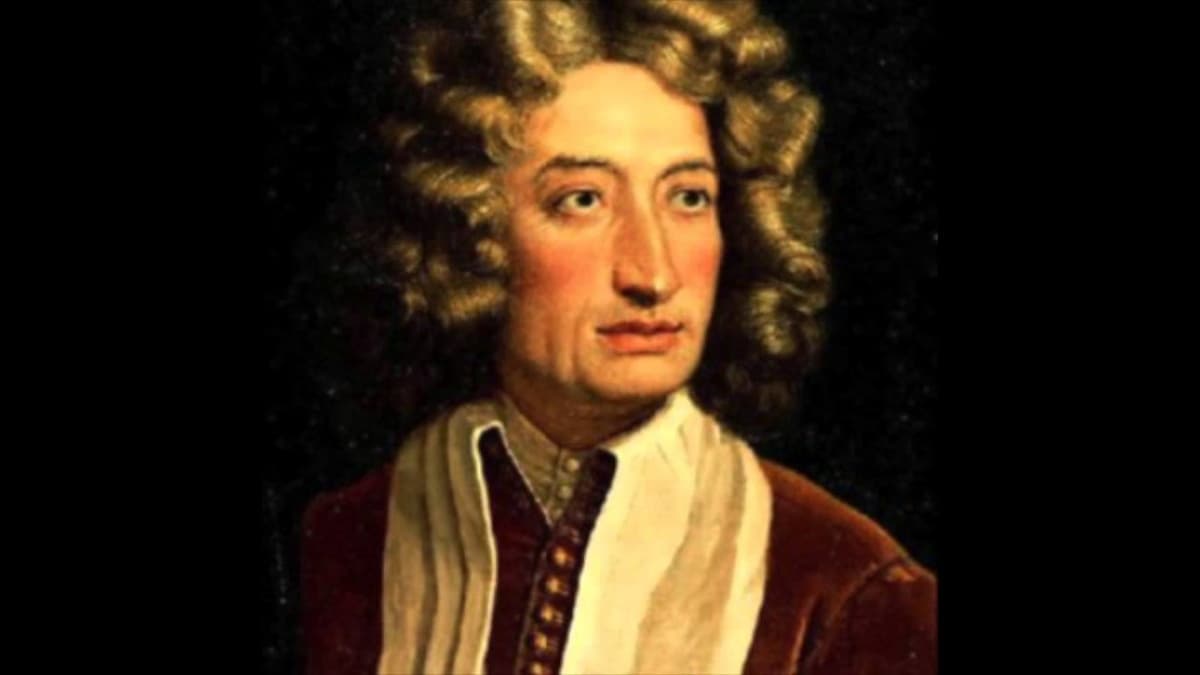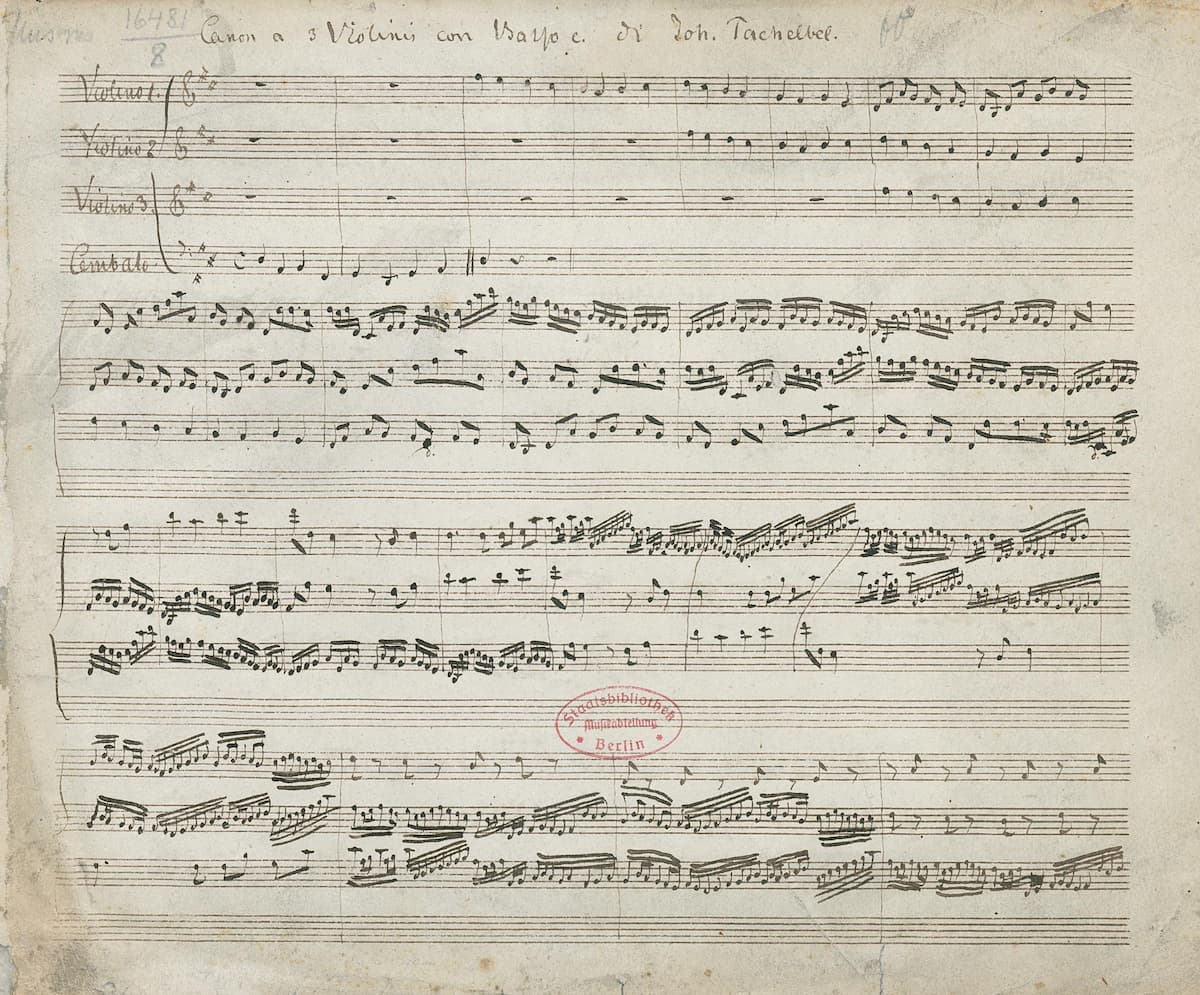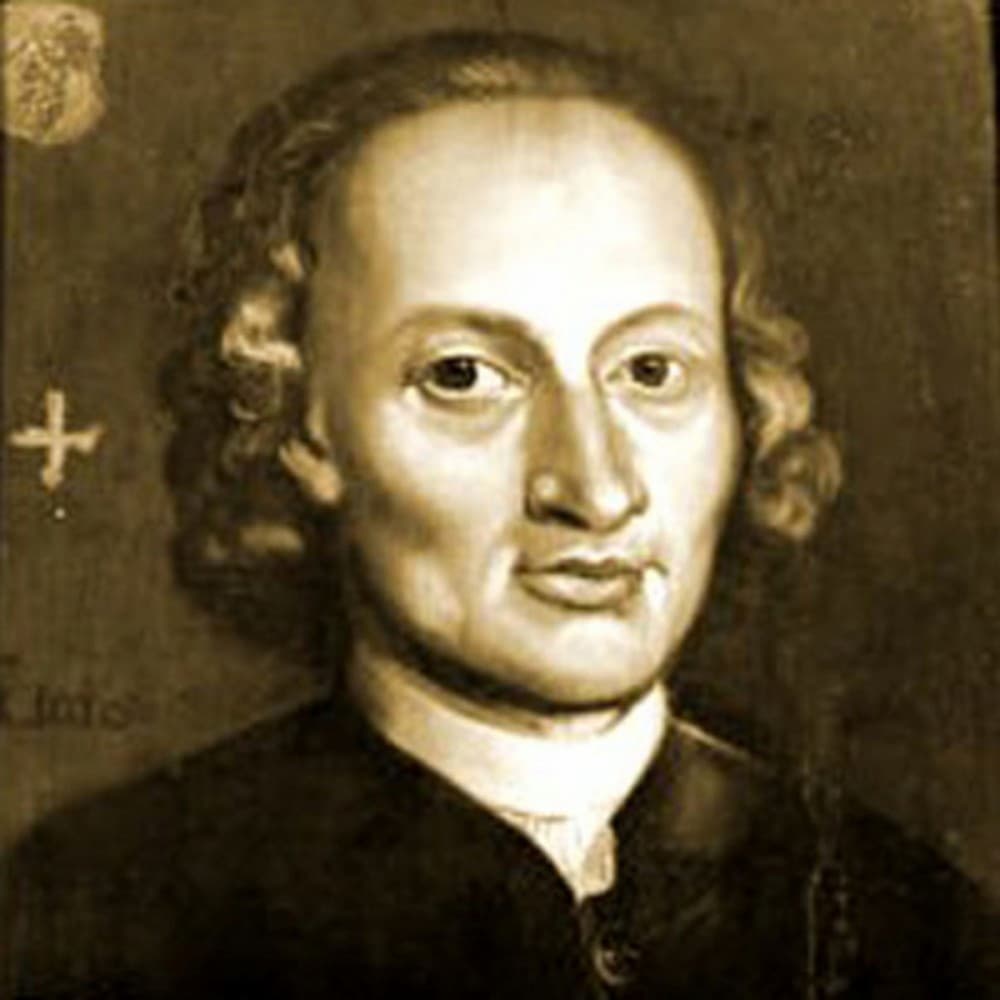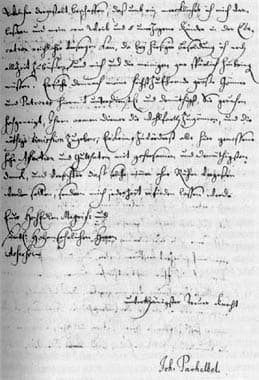He is probably never going to live down that earworm canon, but Johann Pachelbel, baptised on 1 September 1653, is the most famous of a long line of composers working in or around Nuremberg.

Johann Pachelbel
For the longest time, Pachelbel was considered a rather lackluster composer of organ and keyboard music, but that reputation has undergone a fundamental reassessment in recent years. He is now considered “one of the leading progressive German composers of chamber and church music of his time.”
Johann Pachelbel: Canon in D Major
Early Education
Pachelbel was born into a middle-class family, the son of a wine dealer and his second wife. We don’t know the exact day of his birth, but he was indeed baptised on 1 September 1653. And we do know that he had a good many siblings. By all accounts, he was highly intelligent and had a special talent for music. He received his early musical training from the two leading local instructors, Heinrich Schwemmer, who taught him musical rudiments, and G.C. Wecker who taught him composition and provided instrumental lessons.

Johann Pachelbel: Canon
Pachelbel attended St. Lorenz High School and listened to learned lectures at the Auditorium Aegidianum. He entered the University at Altdorf on 29 June 1669 and simultaneously served as organist at the local church. When his father got into financial trouble, Pachelbel was forced to leave the university and enrolled in the Gymnasium Poeticum at Regensburg. He was a brilliant student and was permitted to study music privately under Kaspar Prentz, who introduced him to the music of leading Italian composers.
Johann Pachelbel: Partita in G Major (Cologne Musica Antiqua; Reinhard Goebel, cond.)
Pachelbel and the Bach Family
Regensburg seems to have been Pachelbel’s home until 1673 when we find him living in Vienna as a deputy organist at Saint Stephen Cathedral. Just one year later Pachelbel is documented as the court organist at Eisenach, under the Kapellmeister Daniel Eberlin. Pachelbel seems to have been very close to the Bach family. At the Eisenach Court Band, he was a colleague of Johann Ambrosius Bach, J. S. Bach’s father. Pachelbel was also the godfather of Johann Sebastian’s sister Johanna Juditha, born in 1680.
Pachelbel was described as a “perfect and rare virtuoso,” and he quickly left provincial Eisenach for the big city of Erfurt. His contract as organist at the Predigerkirche (Preacher’s Church) is dated 19 June 1678. Pachelbel succeeded Johann Bach, J. S. Bach’s great-uncle, possibly the first important musician in the Bach family. One year after J. S. was born, Pachelbel became teacher and mentor to Johann Christoph Bach, even performing at his wedding in 1694.
Johann Pachelbel: Jauchzet dem Herrn, alle Welt (Les Agrémens; Jean Tubéry, cond.)
Pachelbel and Johann Sebastian Bach

We can’t be sure, but J. S. Bach, then aged 9, and Pachelbel might have met during wedding ceremonies for Johann Christoph. Scholars, however, have traced the lineage of Pachelbel’s teaching through Johann Christoph to his brother Johann Sebastian. When J.S. started learning about music from his brother, “it is only reasonable to assume that he passed much of the admired Pachelbel’s teachings on in considerably direct form.”
A funny anecdote tells that Johann Christoph possessed a valuable collection of keyboard music containing works from Pachelbel, Froberger, and Kerl. He might have used it to teach his little brother, but would not hand it over for closer inspection. One night, so the story goes, Johann Sebastian took the manuscript and slowly copied it out by moonlight over half a year. Eventually, he was caught, and the so-called “Moonlight Manuscript” was taken away from him.
Johann Pachelbel: Keyboard Suite in D minor, No. 26 (Joseph Payne, harpsichord)
Organist and Legacy

Pachelbel’s autograph letter
Pachelbel’s job description as organist at Erfurt is detailed in a rare surviving document. He was to precede the singing of a chorale by the congregation with a thematic prelude based on its melody, and he was to accompany the singing throughout all the stanzas. These preludes were not to be improvised but had to be worked out diligently beforehand. Essentially, Pachelbel had to prepare a yearly report in the form of a half-hour recital at the end of the afternoon service.
As his contract states, “he was obliged to a re-examination demonstrating his vocational progress during the past years, using the entire resources of the organ in delightful and euphonious harmony.” Pachelbel was one of the few 17th-century composers whose name was never entirely forgotten. And while his canon for three violins and continuo has given Pachelbel surface popularity, there is much evidence to suggest that he was “one of the greatest and productive composers of his time.”
For more of the best in classical music, sign up for our E-Newsletter
Johann Pachelbel: Christ lag in Todesbanden (Johann Rosenmüller Ensemble; Arno Paduch, cond.)
